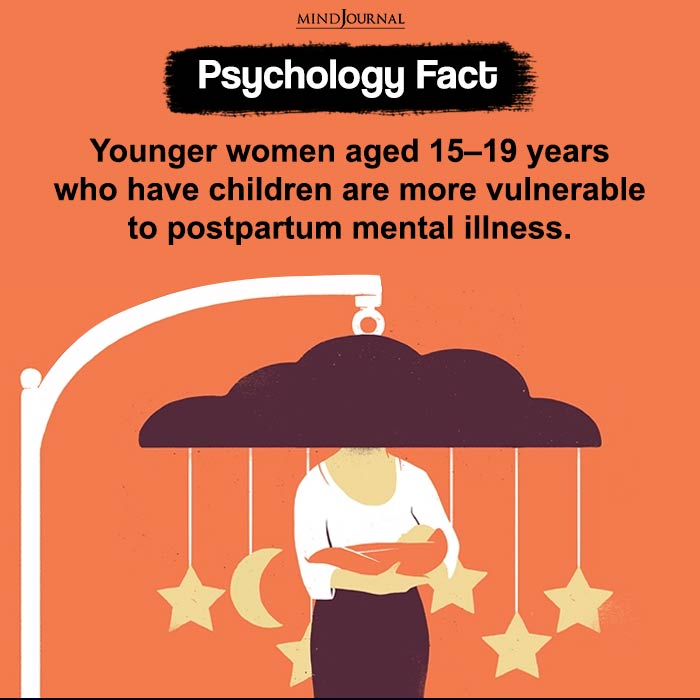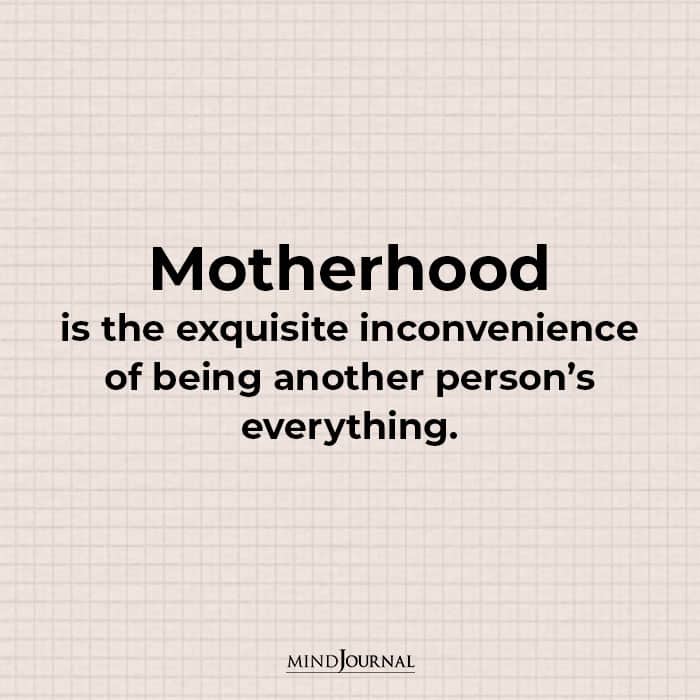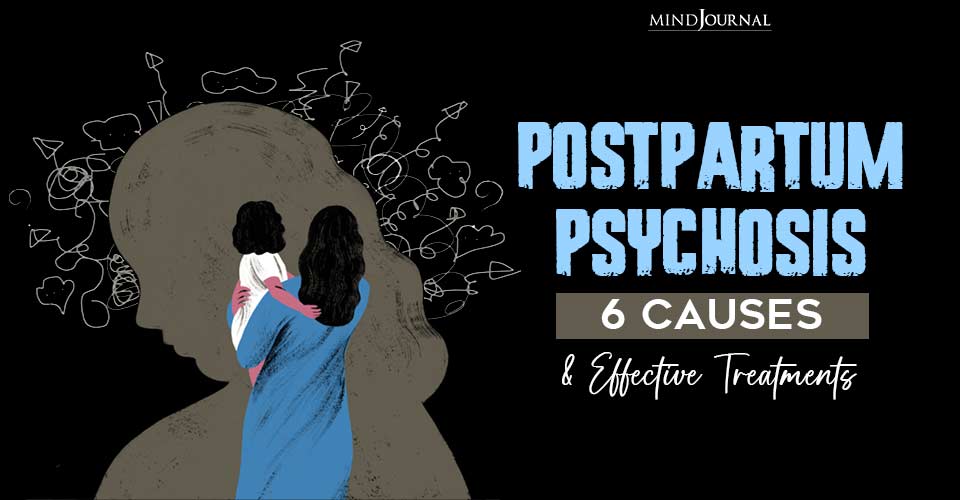The birth of a child is supposed to be a joyous occasion, but for some new mothers, it can trigger a serious mental health condition called postpartum psychosis.
What is postpartum psychosis?
Postpartum psychosis is a rare but serious mental health disorder that can affect women in the weeks following childbirth, leaving them struggling with intense feelings of confusion, anxiety, and despair.
Fortunately, with the right support and treatment, recovery is possible. We must raise awareness about this condition and make sure that new mothers have access to the care and resources they need to heal and thrive.

Postpartum Psychosis vs Depression
It’s important to note that postpartum psychosis is not the same as postpartum depression.
Postpartum depression (PPD) is a more common condition that affects several new mothers. It is estimated that approximately 1 in 7 women experience PPD, making it a very common condition.
Related – Post-Partum Depression: What You Can Do To Fight It
Symptoms of Postpartum Depression can include
- feeling sad or overwhelmed
- difficulty sleeping or concentrating
- Feeling like you are not bonding with your baby.
These symptoms can begin within the initial weeks after giving birth and can last for several months.
However, postpartum psychosis is much rarer and more severe. It is estimated that about 1 to 2 women out of every 1000 births experience postpartum psychosis.
It is a medical emergency that requires immediate attention.
Postpartum psychosis symptoms include –
- Delusions
- Hallucinations
- Extreme mood swings and
- Confusion
- Thought of harming themselves or their baby
It’s crucial to seek help right away if you or someone you know is experiencing symptoms of postpartum psychosis. With proper treatment, recovery is possible, and mothers can get back to enjoying this special time in their lives.
What causes postpartum psychosis?
Postpartum psychosis is a serious mental health condition that affects some women after giving birth.
There are several factors that can contribute to its development, including –
1. Hormonal changes
The rapid drop in hormone levels after childbirth can impact a woman’s mood and behavior. For instance, the hormone estrogen has been shown to have a mood-stabilizing effect, and a sudden decrease in its levels can lead to mood swings and irritability.
Additionally, the hormone progesterone has a calming effect on the brain, and a sudden drop in its levels can lead to anxiety and agitation.
2. Genetics
Women with a family history of postpartum psychosis are more likely to develop the condition. This suggests that there may be a genetic predisposition to the disorder. For example, a woman with a family history of bipolar disorder or schizophrenia may be at an increased risk of developing postpartum psychosis.
3. Substance abuse
Using drugs or alcohol during or after pregnancy can increase the risk of postpartum psychosis. Substance abuse can exacerbate existing mental health issues, and can also increase stress levels and interfere with sleep, which can contribute to the development of postpartum psychosis.
4. Medical complications
Having complications during childbirth, such as bleeding or infection, can increase the risk of postpartum psychosis. These complications can cause physical stress, which can in turn lead to psychological stress and increase the risk of developing postpartum psychosis.
Related – 7 Types Of Postpartum Mental Illness, And 5 Ways To Get Help
5. Stressful life events
Big changes, like having a baby, can be very stressful and increase the risk of developing postpartum psychosis. Other stressful life events, such as financial difficulties, relationship problems, or a history of trauma, can also increase the risk of developing the disorder.
6. Personal history
Women with a history of bipolar disorder or schizophrenia are at an increased risk for postpartum psychosis. This is because these conditions are associated with episodes of mania or psychosis, and the hormonal changes and stressors associated with childbirth can trigger these episodes.

Related – The Dark Side Of Motherhood: 9 Shocking Motherhood Truths
Impact of postpartum psychosis on new mothers
Giving birth to a child is supposed to be one of the most joyous experiences in a mother’s life.
However, for some women, this magical time can be marred by this mental illness.
Here is the impact of postpartum psychosis on new mothers
- It is a serious psychological condition that can cause the mother to experience symptoms such as hallucinations, delusions, and mood swings.
- The mother may experience sleep disturbances, loss of appetite, and physical exhaustion, making it challenging to care for the baby’s basic needs.
- The mother’s relationships with her partner, family, and friends can also get impacted by this condition. Loved ones may struggle to understand the illness and how to support the mother, leading to feelings of frustration and helplessness.
- The mother may feel isolated, ashamed, and afraid to share her symptoms with others, making it challenging to bond with her baby and enjoy motherhood.
Treatment of postpartum psychosis
If you or someone you know is experiencing symptoms of postpartum psychosis. It is important to note that treating postpartum psychosis is possible, and many women with the illness go on to lead healthy, fulfilling lives and become successful mothers.
Here are some of the most helpful strategies for overcoming this condition –
1. Seek professional support
The first step in treating it is to seek professional help. Your doctor or a mental health professional can evaluate your symptoms, provide a diagnosis, and recommend the appropriate treatment.
2. Taking the necessary medications
Medications such as antipsychotics, mood stabilizers, and antidepressants are often used to treat this condition. These medications can help alleviate symptoms such as hallucinations, delusions, and mood swings.
Your doctor will work with you to determine the right medication and dosage based on your symptoms, medical history, and any other medications you may be taking.
3. Therapy
Therapy is also an essential part of treating this condition. Cognitive-behavioral therapy, family therapy, and support groups can help you better understand your illness, develop coping strategies, and improve your relationships with family and friends.
Therapy can also help you identify triggers and warning signs of a relapse and learn strategies to prevent them.
4. Emergency hospitalization
In some cases, hospitalization may be necessary to provide round-the-clock care, ensure your safety, and stabilize your mood. Hospitalization can also provide an opportunity for intensive therapy and support, and help you develop a post-treatment plan to ensure ongoing recovery.
Raising awareness about postpartum psychosis
It is a serious mental illness that can have a profound impact on new mothers and their families.
However, awareness about this condition is still limited, and many mothers may not be aware of the condition or the importance of seeking prompt treatment.
Here are some ways in which we can raise awareness –
- You can raise awareness by sharing information with new mothers, their partners, family, friends, and the wider community.
- You can also support new mothers by providing them with the resources and support they need to seek treatment and manage their condition. This includes providing access to mental health services, support groups, and educational resources about postpartum psychosis.
- As a community, we can also work to reduce the stigma surrounding mental illness, including postpartum psychosis. This can help to create a more supportive and understanding environment for new mothers experiencing mental health challenges.

Related – Pregnancy: The Most Sensitive Stage After Marriage
If you or someone you know is experiencing symptoms of postpartum psychosis, don’t hesitate to seek help. Prompt treatment can make a world of difference for both the mother and her baby.
Frequently Asked Questions (FAQs)
How long does postpartum psychosis last?
The duration of postpartum psychosis varies from person to person, but it typically lasts for a few weeks to a few months if left untreated.
How common is postpartum psychosis
Postpartum psychosis is a rare condition that affects approximately 1-2 women out of every 1,000 who give birth.
How to help someone with postpartum psychosis
To help someone with this condition it is important to seek professional medical care, provide emotional support, and ensure a safe and stable environment for both the mother and the infant.










Leave a Reply